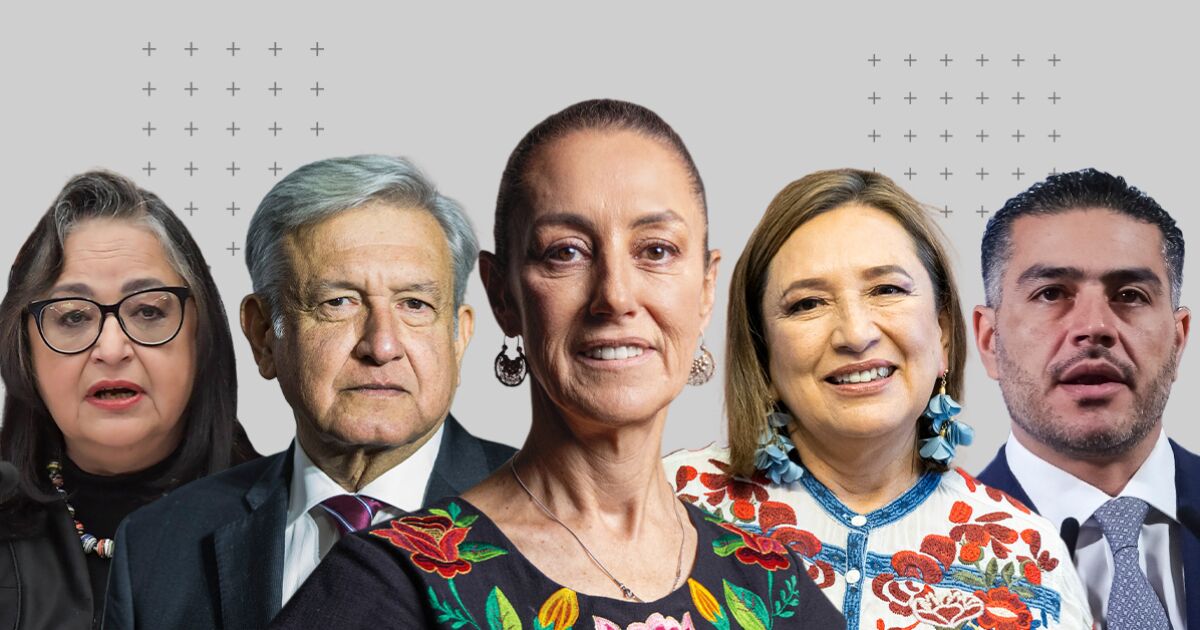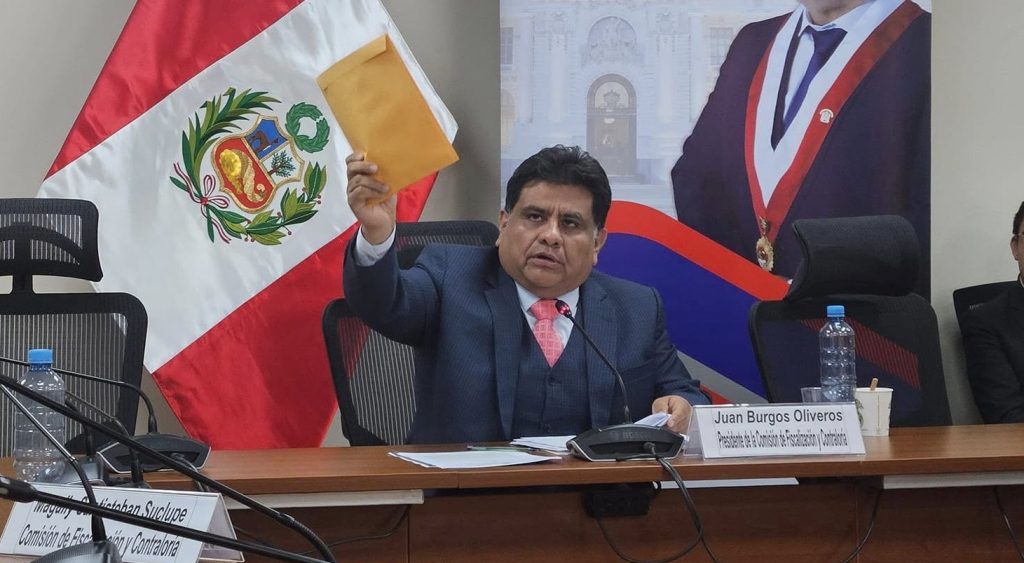1. Claudia Sheinbaum
The former head of Government of Mexico City won the presidential elections in June 2024, making her the first woman to head the Executive Branch of the country. In addition, it obtained the highest percentage of the vote since 1982.
TIME magazine had the president on the list of candidates for “Person of the Year 2024”, recognizing her as a “lifelong leftist” woman who focused her presidential campaign on the “fight against the poor.”
Sheinbaum came to power with great support with 35.9 million votes—almost 6 million more than his predecessor obtained—and obtained the majority in the Chamber of Deputies and, later, won it in the Senate, which gave him has allowed to do major constitutional changes for the country.
(Photo: Mario Jasso/Cuartoscuro)
2. Andrés Manuel López Obrador
Until the last minute of his presidency in September 2024, López Obrador had a great role. He gave the presidential sash to Claudia Sheinbaum and managed position Morena, in just 10 years, as the main political force so it now governs 23 states and Mexico City, has control of the two Chambers and 27 other local congresses in the country.
López Obrador closed his six-year term with an approval rating of 68%, his best level since 2019, surpassing his three predecessors. Furthermore, before leaving, he left a package of 20 constitutional reforms in the Congress of the Union, among which the modification to the Judiciary stands out.

(Photo: Presidency/AFP)
3. Xóchitl Gálvez
The former senator rose on the political scene as the opposition candidate for the Presidency of Mexico; The main factor that led her to that place was that in 2023 she tried to enter a press conference at the National Palace to respond to the accusations made against her by then-president Andrés Manuel López Obrador. When her access was prevented, the then senator monopolized the spotlight, which catapulted her to the candidacy of the opposition bloc.
The woman from Hidalgo became the contender for the PAN, PRI, PRD and although she generated expectations, she was joined by the so-called “Pink Tide”—which months before the June election, took to the streets en masse in defense of the National Electoral Institute (INE). ) of López Obrador’s attacks and electoral reform—in the end, Gálvez lost the contest after being 30 points behind of the winner.

(Quetzalli Nicte-Ha/REUTERS)
4. Jorge Álvarez Máynez
The former deputy and coordinator of the Citizen Movement bench became the presidential candidate of that party. Although he lost the electoral contest, he managed to place his party as the third political force by obtaining a historic vote for that political body. With this, he left the PRI in fourth position.
With songs like “Presidente Máynez”, the party was recognized among the population, as it exceeded 6 million views on the Spotify music platform. With this recognition, Movimiento Ciudadano obtained, in the presidential election alone, 5.8 million votes, which is 10.4% of the total vote. That amount was seven times greater than what it achieved in 2018.
Álvarez Máynez closed the year as national leader of MC, the party that governs Nuevo León and Jalisco.

(Photo: Jorge Álvarez Máynez Press)
5. Norma Piña
The minister president of the Supreme Court of Justice of the Nation (SCJN) maintained differences with the Executive and Legislative Branch: first due to López Obrador’s reforms that were declared unconstitutional by the Supreme Court of Justice and later, due to the modification to the Judicial Branch driven by Morena.
His vote in favor of invalidating part of the Judicial Reform and her complete support for the workers of that Judicial Branch who stopped work and demonstrated against the constitutional modification, distanced her further from the Executive Branch and the Morenoist heads of the Legislative Branch.
The minister will leave the Court in 2025 after the judicial election, to which decided to resign, along with seven other ministers, to not participate in the elections.

(Supreme Court of Justice of the Nation)















